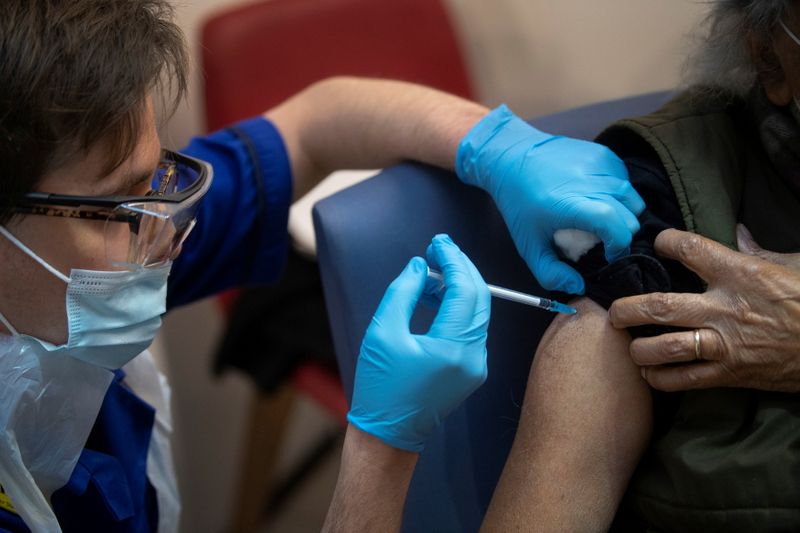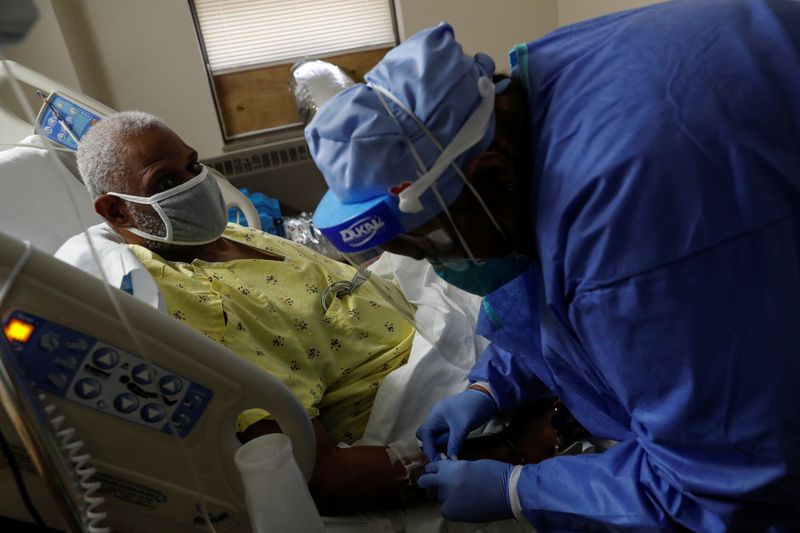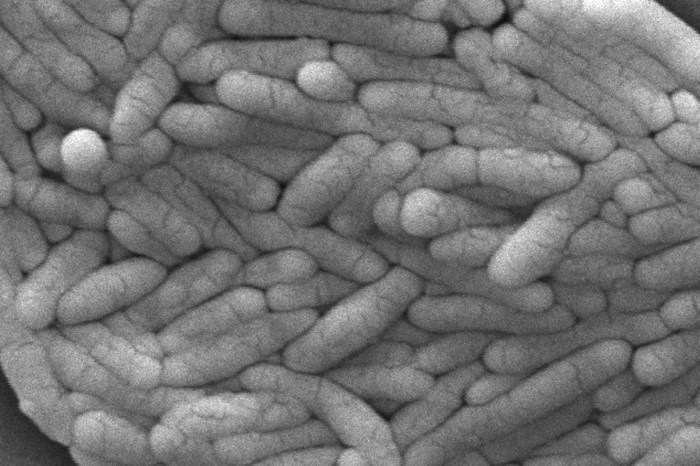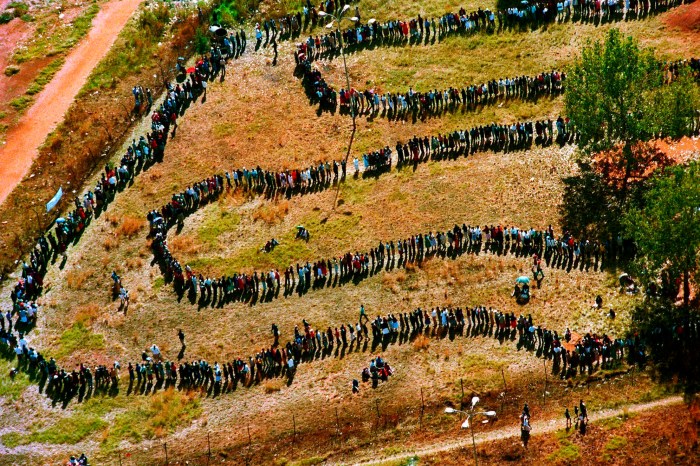(Reuters) – Britain’s medicine regulator has advised that people with a history of significant allergies do not get Pfizer-BioNTech’s vaccine after two people reported severe adverse reactions on the first day of rollout.
DEATHS AND INFECTIONS
* For an interactive graphic tracking the global spread of COVID-19, open https://graphics.reuters.com/world-coronavirus-tracker-and-maps/ in an external browser. * Eikon users, see COVID-19: MacroVitals https://apac1.apps.cp.thomsonreuters.com/cms/?navid=1592404098 for a case tracker and summary of news.
EUROPE
* German Chancellor Angela Merkel said that authorities in Europe’s largest economy would not be able to provide vaccines to enough people in the first quarter of 2021 to cause a big change in the pandemic’s course.
* A 90-year-old grandmother became the world’s first person to receive a fully tested novel coronavirus shot on Tuesday, as Britain began mass-vaccinating its people.
* Sweden’s government proposed new temporary legislation to expand its powers to fight the pandemic, giving it greater leeway to implement and enforce lockdown measures such as closing shopping malls and gyms.
* A coronavirus outbreak detected last month on a mink farm in France did not involve a mutated strain of the virus, the agriculture ministry said.
* Cyprus ordered the closure of malls and restaurants until the end of the year to try to subdue an aggressive jump in cases.
AMERICAS
* Economic relief and a vaccine drew nearer to reality on Wednesday to counter a pandemic that has ravaged the U.S. economy and killed 286,487 people, with year-end holiday gatherings expected to fuel another surge in infections.
* U.S. cases crossed 15 million on Tuesday as President-elect Joe Biden vowed to vaccinate 100 million Americans in his first 100 days in office.
* Brazil will “quite likely” begin vaccinations to stem the pandemic in January or February, Health Minister Eduardo Pazuello said in a Wednesday interview with CNN Brasil.
ASIA-PACIFIC
* A Royal Caribbean “cruise-to-nowhere” from Singapore confined nearly 1,700 passengers to their cabins in port for more than 16 hours after a COVID-19 case was detected on board.
* Indonesia reported on Wednesday 171 more deaths from the coronavirus, marking the Southeast Asian country’s highest daily rise in fatalities.
* Governments in Asia could require inbound travellers to receive COVID-19 vaccinations, AirAsia Group’s Chief Executive Officer said, with such conditions expected to become a trend in the region.
MIDDLE EAST AND AFRICA
* Israel received its first shipment of vaccines on Wednesday and a distributor predicted the country would have enough for about a quarter of the population by the end of the year.
* Turkey’s daily deaths rose to a record 211 in the past 24 hours.
MEDICAL DEVELOPMENTS
* An experimental vaccine developed by China National Pharmaceutical Group (Sinopharm) has 86% efficacy, the health ministry of the United Arab Emirates said, citing an interim analysis of late-stage clinical trials.
* Pfizer cleared the next hurdle in the race to get its vaccine approved for emergency use after the U.S. Food and Drug Administration released documents that did not raise any new issues about its safety or efficacy.
* AstraZeneca and Oxford University have more work to do to confirm whether their vaccine can be 90% effective, a peer-reviewed paper in the Lancet showed.
ECONOMIC IMPACT
* Global stocks reached record highs on Wednesday as investors hailed efforts to provide more fiscal stimulus and positive news on COVID-19 vaccines, and sterling made gains as British and European leaders meet for talks on a Brexit trade deal. [MKTS/GLOB]
* Japan will extend a housing tax incentive by one year, allowing a deduction for those scheduled to move into a new home by the end of 2022 as part of efforts to ease economic strain caused by COVID-19.
(Compiled by Anita Kobylinska; Editing by Kirsten Donovan)




















